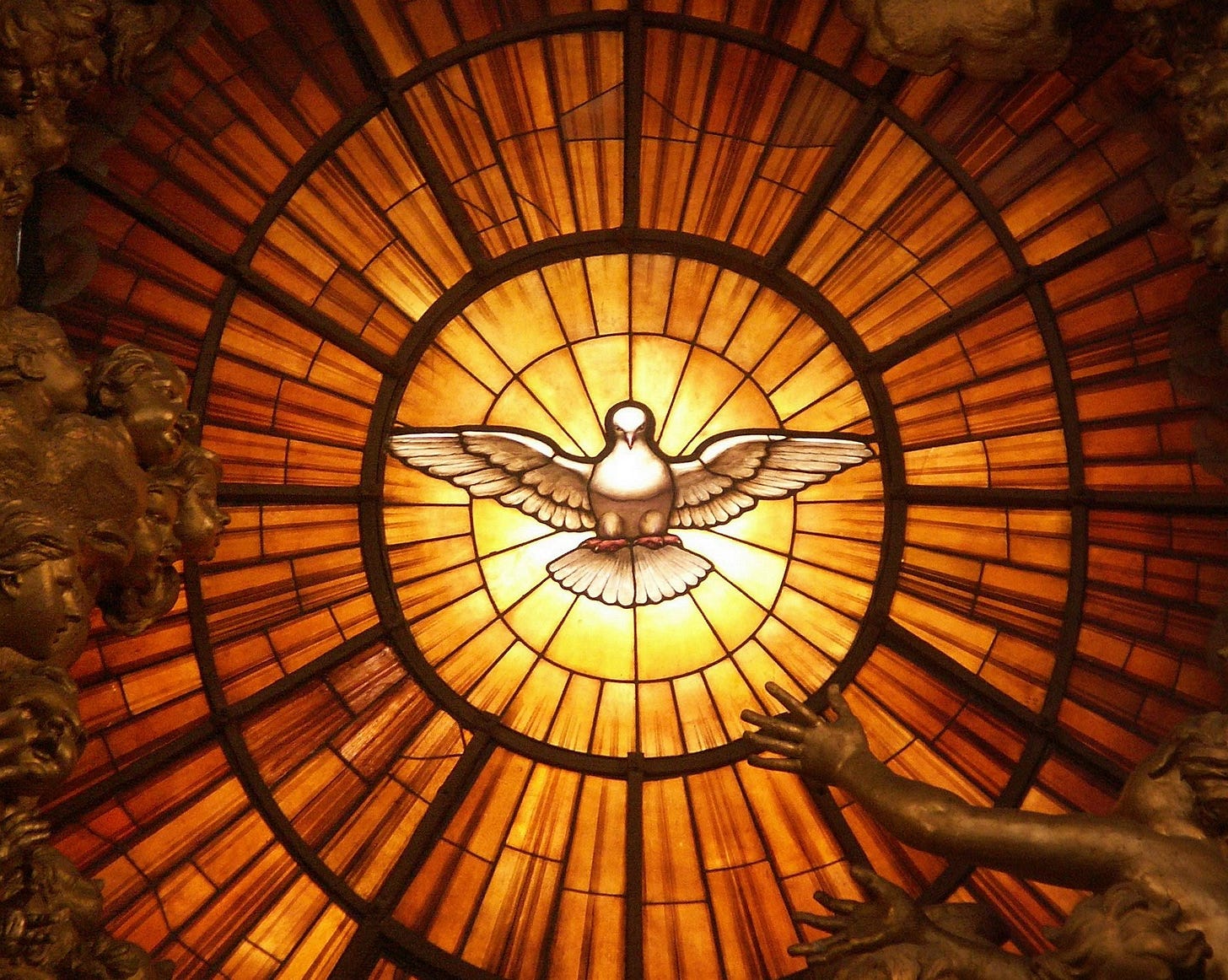Yesterday was Pentecost. Did you receive the Spirit? No, seriously—tongues of fire? Flames over your head? Did you suddenly start speaking Aramaic without ever having studied it?
Jokes aside, perhaps the more serious question is the one St. Paul asked the disciples he met in Ephesus: “Did you receive the Holy Spirit when you became believers?” They answered, “We have not even heard that there is a Holy Spirit” (Acts 19:2).
Back in 1897, Pope Leo XIII made an observation that still rings true today:
Perchance there are still to be found among [Christians], even nowadays, some, who if asked, as were those of old by St. Paul the Apostle, whether they have received the Holy Ghost, might answer inlike manner: "We have not so much as heard whether there be a HolyGhost" (Acts 19, 2).
(Encyclical on the Holy Spirit Divinum illud munus)
And what about us? The Holy Spirit—the “forgotten Person of the Trinity”—is present, yet often overlooked. Like the air we breathe: essential but invisible. Like breathing itself: vital and constant, but something we usually do without even thinking. That’s how life in the Spirit should be—natural, essential, continuous.
To breathe in the Spirit means letting Him move in every moment of our day—even without dramatic signs. We don’t need to chase after extraordinary experiences.
We just need to learn to invoke Him simply: before a meeting, a decision, a task—to do it well; and after—to let Him gently correct our flaws with gratitude and humility. Just a breath and a whisper: “Come, Holy Spirit.”
The result? Maybe we won’t speak in unknown tongues, but we might start speaking with patience, peace, and forgiveness. And honestly, that would already be a miracle—the beginning of a life beyond the ordinary.
Image: Holy Spirit as a dove, by Gian Lorenzo Bernini, in the apse of Saint Peter's Basilica, c. 1660 da Wikimedia Commons




